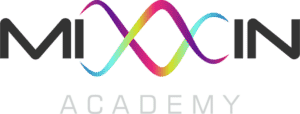Noiselab is a community that offers music production courses taught by Ableton Certified Trainers, successful producers, and electronic musicians. It features online courses, video tutorials, sample packs and sounds, as well as a producer community. In turn, this community provides professional programs that help both beginners and experienced users acquire new skills. Those experienced students can perfect the skills they already have to levels unknown to them before.
Noiselab: All About Actualization
Noiselab is a music community that is in constant actualization. Consequently, they add new courses every month. Each course is for students to learn from the best teachers and trainers. Moreover, pupils will have unlimited access to choose from a broad collection of the best programs to suit their desires and needs. Similarly, the professionals who deliver the courses encourage them to work at their own pace from anywhere around the world.
Noiselab’s Courses: an Array of Options
Noiselab offers a wide selection of courses for all skills and levels of experience. For example, some of the programs include Electronic Music Production, DJing with Ableton Live, Synthesis, Sidechain, Mixing Essentials, Ableton Wavetable Synth, and Sound Design. Other examples consist of Working with Effect Racks, Live Looping, Max for Live Devices, and Creating Rhythmic Feel with Grooves. Just to mention a few more, there’s Deep Dive into Sampler, Parallel and Multiband Processing, and many more.
Music Production Bootcamp
Furthermore, Noiselab also offers a variety of royalty-free loops, MIDI, and On-Shots, and interactive training courses. For instance, the Music Production Bootcamp is an 18-week online program where students learn how to produce music in a relaxed atmosphere. As a result, students engage in an interactive digital classroom where they learn from an Ableton-certified instructor.
They divide this Bootcamp into three six-week courses. Firstly, in Composition and Beat-Making, students learn about different topics. Such topics include melody and lead sounds, clips, drum racks and rhythm theory. In addition, they explain transitions and clip envelopes, keys, scales, drum progressions, bassline, and equalizing. Secondly, in Synthesis and Sound Design, students become involved in wavetable synthesis and modulation, making instrument racks, and all things synthesis. For example, they delve into analog subjective, FM, and synthesis with samples. Thirdly, in Arranging, Mixing, and Mastering, students will be able to learn about arrangement concepts, mixing concepts, basic mastering, arrangement view and the linear timeline, arrangement editing, and track automation.
Noiselab: a Final Note
Flexibility is key when it comes to Noiselab courses. As a result, they offer several possibilities for students to enrol.
